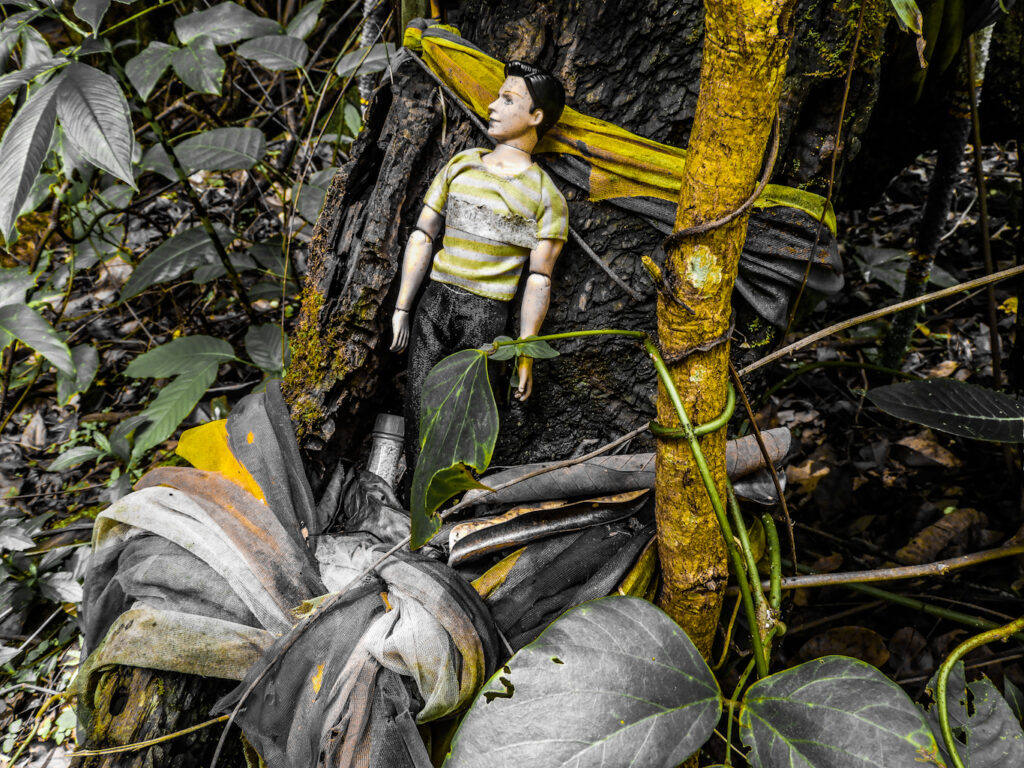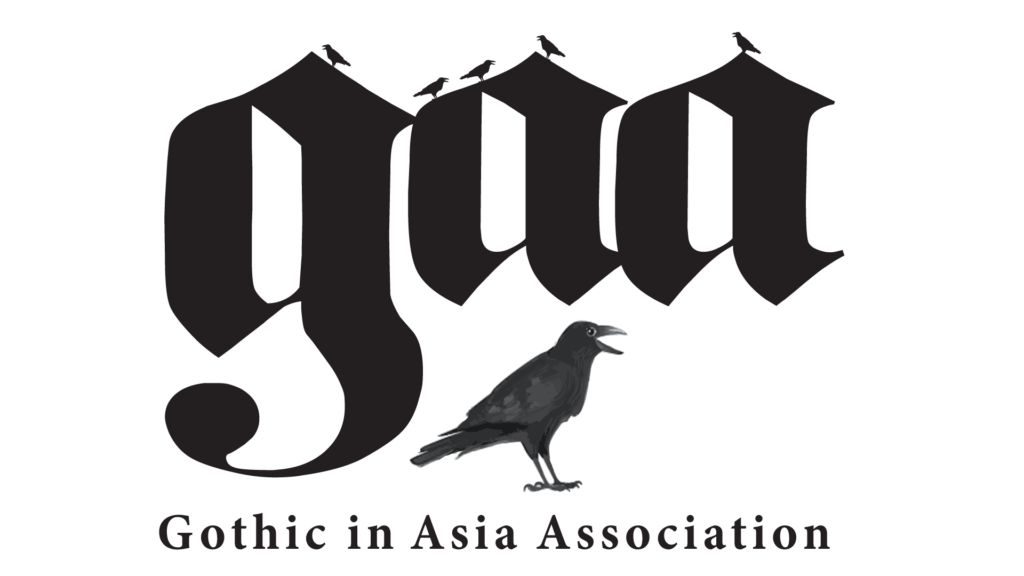
On this page you can find information about current and past events organised by our association and its members.
Do you have an event that you would like to advertise here? Please email gothicinasia@gmail.com to submit, though ensure your submission follows the Language and Submission policy.
Current Events
Fantasy Shakespeare and Women
On 17 November, our very own Sarah Olive will be leading a conversation with NYT bestselling author Chloe Gong. Sarah has been reading her work since 2020 (These Violent Delights was a big book she discovered during the pandemic). She teaches her work now and has written on the joyous multilingualism in her books for Jeunesse. All are welcome to join (online).
Folk Horror Lecture Series
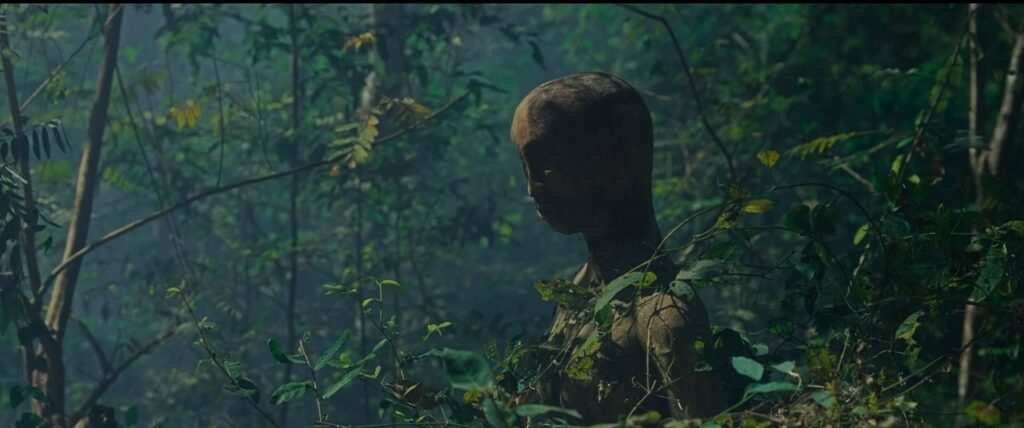
Do not miss this exciting series of lectures on folk horror organised by The Last Tuesday Society. In December we will be talking about Thailand.
Past Events
Captivating Criminality 9:
Intersections of Crime and the Gothic
The first Asian Captivating Criminality conference of the International Crime Fiction Association [ICFA] organised in cooperation with the Gothic in Asia Association [GAA], the BALAC Programme of the Faculty of Arts, Chulalongkorn University and Manusya, Journal of Humanities
Bangkok, 2-4 March 2023 and online
Crime and the Gothic
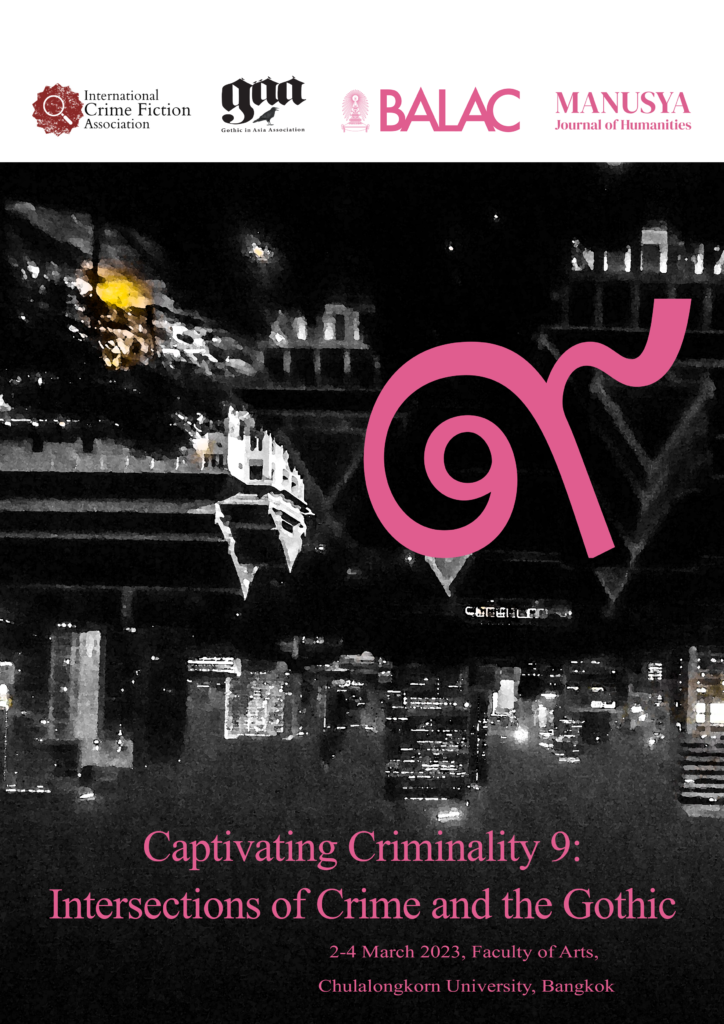
Crime and the Gothic have always shared a special relationship. With its emphasis on the surprising and the mysterious, secretive landscapes and characters, and often excessive fascination with violence, deviance, and all forms of transgression, the Gothic novel was crucial for the emergence of crime fiction and their identifying features overlap to a certain extent. The Gothic novel was a direct influence on the development of the sensation novel and the detective story, which felt at home with its conventions of secretive past, multiple identities, fake deaths, and scientific reanimation of the dead. Crime fiction secularised Gothic narratives and domesticated their settings, adapting them to the fast-changing modern world. This mutual influence continued across the media. The Gothic mode was consequential for the development of hardboiled fiction, while film noir set out stylistic patterns for identifying Gothic aesthetics in visual media. The skyrocketing popularity of serial killer film and television narratives since the 1990s owes much to reinventing predatory multiple murderers as human equivalents of vampires. And while most crime narratives tend to avoid clearly supernatural plots, ghost stories past and present continue to portray haunting as a response to crime-related trauma.
Conference Schedule
Conference Abstracts
Conference Speakers
Due to pandemic, unfortunately we were unable to host our conference participants in Taipei. Fortunately, thanks to the efforts of our videographer, Solarsin Ngoenwichit, we could complete at least some of our planned research activities and want to share with you the results of our work. This short video shot during our research trips in Taipei was made to introduce the city and NCCU, our host institution, to the participants during the event.
One of our research trips took us to the Puppetry Art Center of Taipei where we learnt about Taiwanese potehi puppets from the masters. Our special thanks go to Chiafi Hsu, Artistic Director of Taiwan Potehi Institute, Dmitri Carter from Northwest Puppet Center and the master puppeteer Yeung Fai for agreeing to talk to us. We are also very grateful to our local hosts, Josh Chung-hsuan Huang and Chloe Chih-yi Cheng for all their invaluable help.
Asian Folklore, Folk Horror and the Gothic, Academic Conference, 19-20 October 2022

The event will examine the ways in which Asian folklore, folk horror and Gothic narratives intersect with each other. Folklore is often said to be the origin point of the Gothic. As a complicated category containing stories of ghosts and monsters intimately attached to cultural practices and literary texts and landscapes, folklore is a source of inspiration for strange stories in many Asian contexts, both in the past and in the present. Animistic beliefs, supernaturalism, mediums and shamanic practices underpin the way in which folklore and Gothic texts are produced and consumed. Folklore is also intimately attached to the landscape, as it elucidates the relationship between humans and their environs. Asian folklore abounds with horrifying ecologies in haunted landscapes populated by people and spirits.
In researching this field more deeply, this event aims to contribute new ideas about connections between Asian folklore and the Gothic. In addition, it aims to create educational materials so that this research can be disseminated to a broader audience.
Conference Schedule
Conference Abstracts
Asian Folklore, Folk Horror and the Gothic, Roundtable Discussion, 15 September 2022
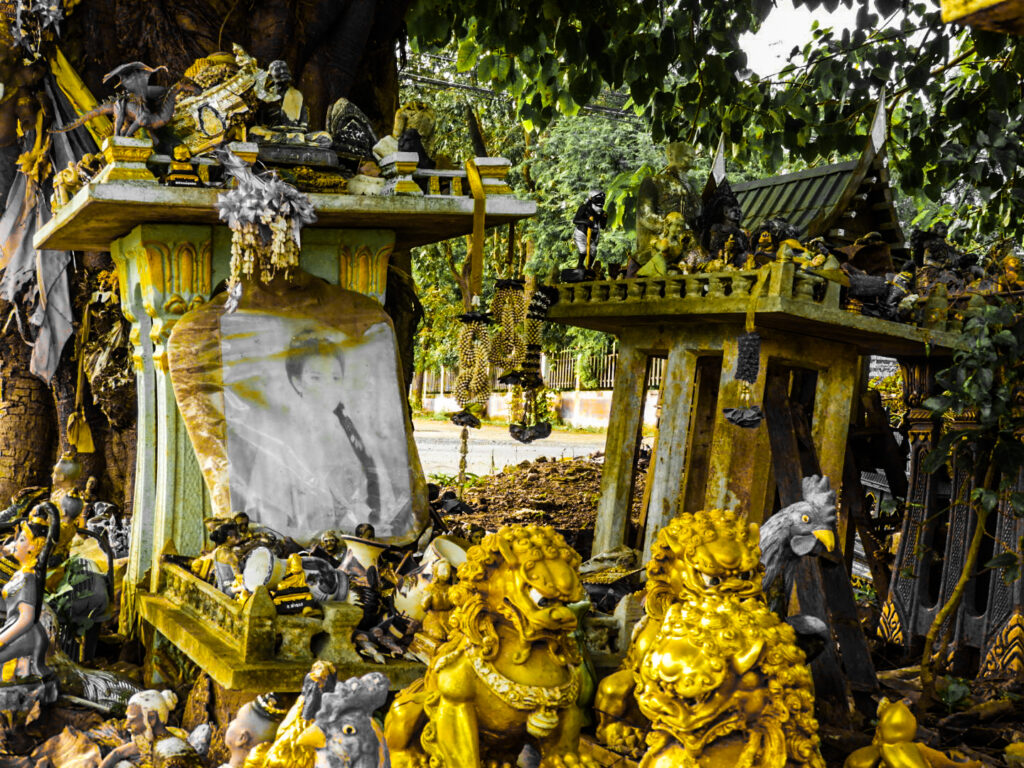
The roundtable discussion on “Asian Folklore, Folk Horror and the Gothic” is an online event sponsored by the Office of International Cooperation at National Chengchi University, Taipei, Taiwan.
This is one of the inaugurating events of the Gothic Association in Asia (GAA), an interdisciplinary group that welcomes scholars, creatives and enthusiasts from diverse disciplines and sectors. We hope to offer a nurturing environment for early career researchers, mentoring PhD students and postdoctoral fellows as they strive to disseminate their research and network internationally.
Our main focus in this roundtable will be the “transnational” and “transdisciplinary” nature of Asian folklore, folk horror and Gothic narrative. We would like to investigate further the ways in which Asian folklore has been understood or construed in a transcultural context, as well as how it has been integrated within the framework of folk horror and Gothic narrative of our time. We would also like to open our discussion about the formation and reception of Asian folklore, its transmission, adaptation and regeneration in various transmedial contexts.
The roundtable discussion will take place on Thursday, 15 September 2022, 4 pm Taipei time (5 pm Japan time, 3 pm Thailand time, 2 pm Bangladesh time, 9 am UK time) on Zoom. The roundtable will last around 3 hours.



